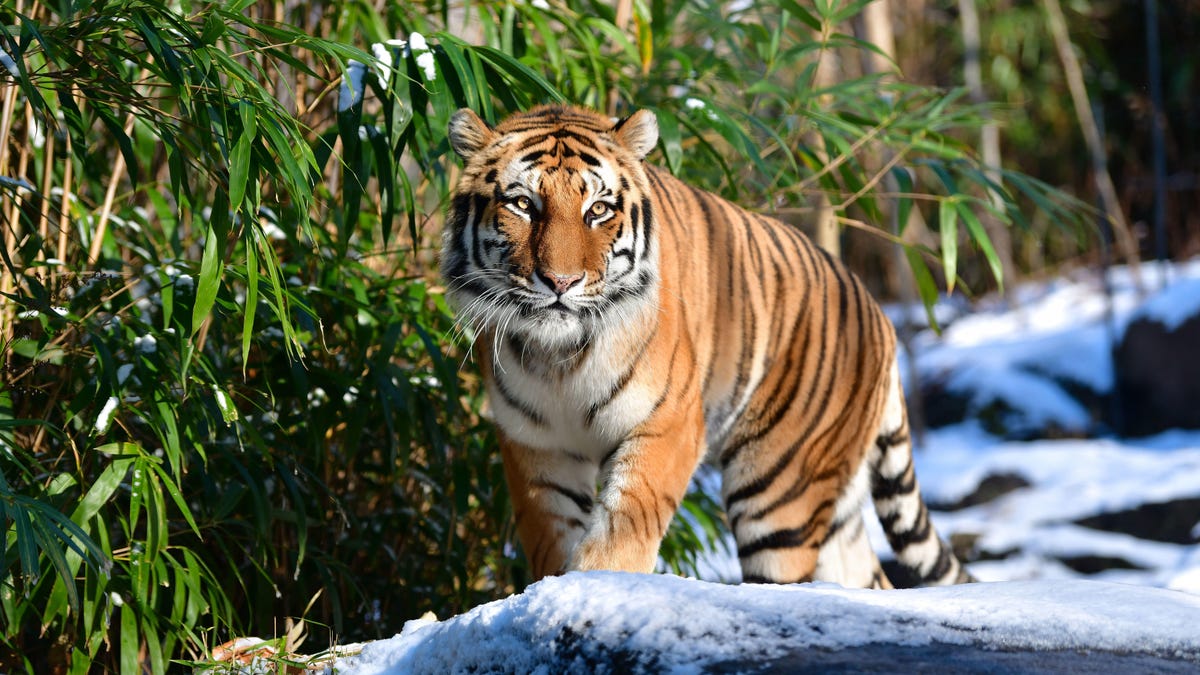Four tigers and three lions test positive for coronavirus at the Bronx Zoo
Additional cases of COVID-19 have been confirmed in seven big cats.

A total of eight big cats at the Bronx Zoo have tested positive for SARS-CoV-2, the coronavirus which causes COVID-19.
Four tigers and three lions at the Bronx Zoo in New York City have tested positive for the coronavirus , according to the Wildlife Conservation Society. The confirmation of additional coronavirus cases comes after the first confirmed case of COVID-19 in a wild animal was documented in Nadia, a Malayan tiger at the zoo, on April 5.
Confirmation that the big cats had tested positive for the disease came after National Geographic made inquiries on Wednesday about their health, the magazine reported. The Wildlife Conservation Society, the organization that runs the zoo, had previously said that an additional six cats displaying symptoms of disease on April 5 and those presumptive cases were confirmed via fecal sampling. Another tiger that wasn't displaying symptoms has also tested positive, the WCS said.
The felids were likely infected by an asymptomatic individual who was working at the zoo, the WCS said, adding that all eight cats "continue to do well" and are "behaving normally, eating well, and their coughing is greatly reduced."
No other big cats at the Bronx Zoo have shown any signs of illness.
The ability for the coronavirus, SARS-CoV-2, to infect species other than humans has been documented through a handful of cases around the world. On Wednesday, the Centers for Disease Control and Prevention confirmed two cats in New York City were positive for the virus, the first time infection had been noted in companion animals in the US. There's no cause for alarm regarding pets spreading disease as it seems companion animals are likely becoming infected after close contact with a person who has COVID-19.
Researchers continue to tease out how the coronavirus might affect animals.
"Public health officials are still learning about SARS-CoV-2, but there is no evidence that pets play a role in spreading the virus in the United States," the CDC notes. "Therefore, there is no justification in taking measures against companion animals that may compromise their welfare. Further studies are needed to understand if and how different animals, including pets, could be affected."
If you're concerned about the health of your pet or companion animal, take a look through CNET's extensive explainer on how COVID-19 may affect cats and dogs or head to the CDC website for tips to protect yourself and your pet.

